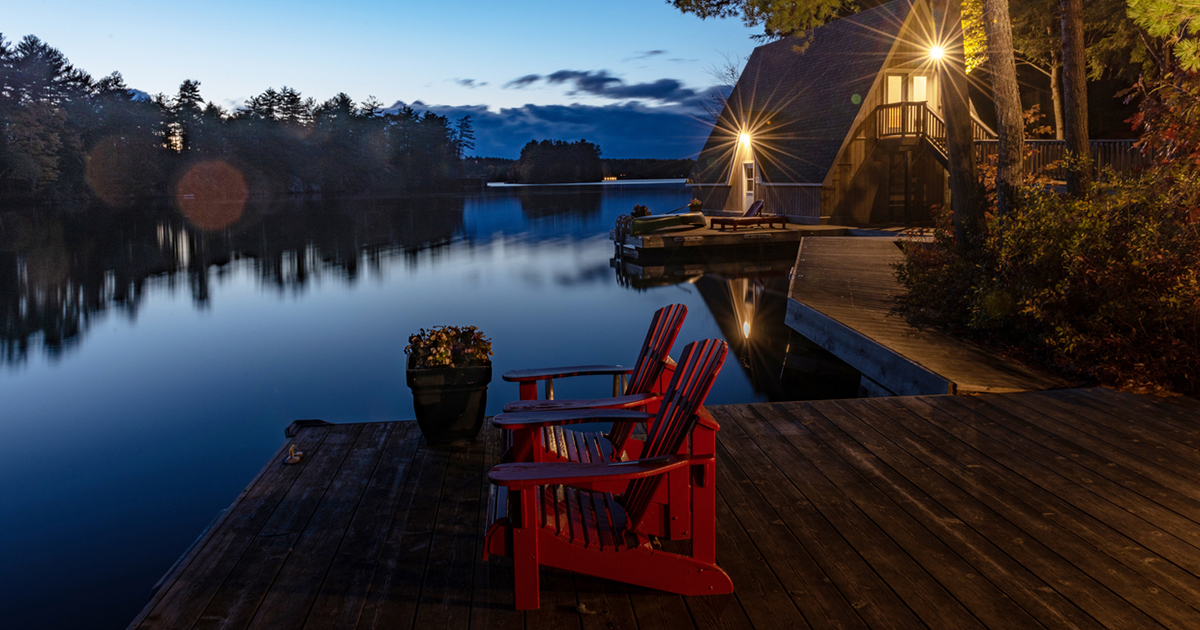
For many families, cottages are more than just a valuable asset—they’re a place where memories are made, traditions are carried on, and connections to nature are formed. Shawna Perron, Portfolio Manager at Perron & Partners and Cumberland Wealth management, understands this deeply. Having spent her childhood summers at her family’s cottage on Lake of the Woods, Ontario, she appreciates both the sentimental and financial significance of these properties. But as Shawna explains, when it comes to passing down the family cottage, proper planning is crucial to avoid future complications.
The balance of sentiment and financial realities

According to Shawna, families often struggle to balance the emotional attachment to a cottage with the financial complexities that arise during estate planning. “Many families feel a strong connection to their cottages because they’ve been a backdrop for years of shared experiences,” she says. “But cottages are also valuable financial assets, which can lead to conflict if plans for inheritance aren’t clearly communicated.”
Some families may decide that the simplest solution is to sell the cottage and divide the proceeds among beneficiaries. This can avoid potential disputes and the significant tax burden that often comes with inheriting a property. On the other hand, for those who wish to keep the cottage in the family, careful planning is essential.
“Communication is key,” Shawna emphasizes. “If more than one household will share ownership, everyone needs to be on the same page about how the property will be used, who will cover the expenses, and what happens if one party wants out.”
Financial considerations for cottage inheritance
Shawna points out several key financial planning considerations for families who wish to pass their cottage down to the next generation:
Taxation
Over time, cottages often appreciate significantly in value, leading to substantial capital gains taxes. Families need to plan for how these taxes will be paid. Without proper planning, the tax burden could force the sale of the cottage.
Affordability
Even if the next generation wants to keep the cottage, affording it can be a challenge. Rising property taxes, maintenance costs, and the expenses of maintaining a seasonal home may put a strain on beneficiaries.
Maintenance
Families should also decide who will be responsible for covering property taxes, maintenance, and repairs. Establishing clear agreements early on can prevent future disputes.
Liquidity
If one beneficiary wishes to sell their share, families need a process in place to manage this. Often, selling a share of the cottage can lead to complications, especially if other family members are emotionally attached to keeping the property.
Protection
Shawna advises families to consider how they can protect the cottage from becoming part of matrimonial property in the event of a separation or divorce. “It’s important to have legal structures in place that prevent the cottage from being divided up during a divorce, especially if the goal is to keep it within the family,” she says.
Case Study: MacFarland v. MacFarland and the Cottage as a Matrimonial Home
A notable legal case highlights the risks that cottages can pose during a divorce. In the MacFarland v. MacFarland case, Mr. MacFarland inherited a cottage from his mother, which he registered in his own name. Over the years, both he and his wife invested time and money into renovating the cottage. Despite the fact that the cottage was inherited and registered solely in Mr. MacFarland’s name, the court ruled that the cottage was a matrimonial home under Ontario’s Family Law Act.
According to the Family Law Act, any property that is used as a family residence—even occasionally—can be classified as a matrimonial home. This means that, in the event of a separation, the property may be included in the division of net family property, regardless of who inherited it or whose name is on the deed.
In the MacFarland case, the court found that the cottage had been used by the family as a residence, especially during holidays and summer weekends, and was therefore subject to division as part of the matrimonial assets. The fact that the couple did not regularly occupy the cottage together in the later years did not change the court’s ruling.
This case serves as a reminder that, even if a cottage is inherited, it can still be considered a matrimonial home and subject to division during a divorce. Shawna advises families to take steps to protect their cottages from such legal risks. “Setting up a trust or drafting a legal agreement, such as a marriage contract, can help shield the cottage from becoming part of matrimonial property,” she explains.
Planning ahead is key
Shawna emphasizes that early and thoughtful planning is essential to protect the future of the family cottage. Legal structures like shared asset agreements or trusts can help ensure that cottages are passed down in accordance with the owner’s wishes while avoiding potential legal and financial pitfalls.
“Families often wait too long to start these conversations, thinking they can deal with it later,” she says. “But having a plan in place now—whether that’s selling the cottage or keeping it within the family—will help you avoid conflicts and ensure a smoother transition for future generations.”
In cases where families own cottages across multiple provinces or countries, Shawna recommends consulting legal and tax experts who are familiar with the laws of each jurisdiction. Different provinces, states, and countries handle property division differently, and it’s important to have a comprehensive plan that takes all of these factors into account.
Passing down a family cottage requires more than just sentimental considerations. As Shawna reminds us, “It’s a complex decision that requires open communication, financial planning, and sometimes legal protection.” Whether you intend to sell the cottage or pass it on to future generations, having the right guidance can make all the difference in preserving the legacy of your family cottage.